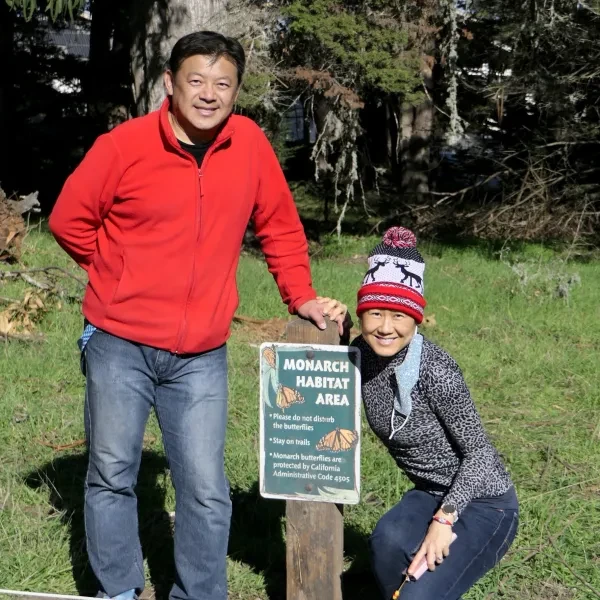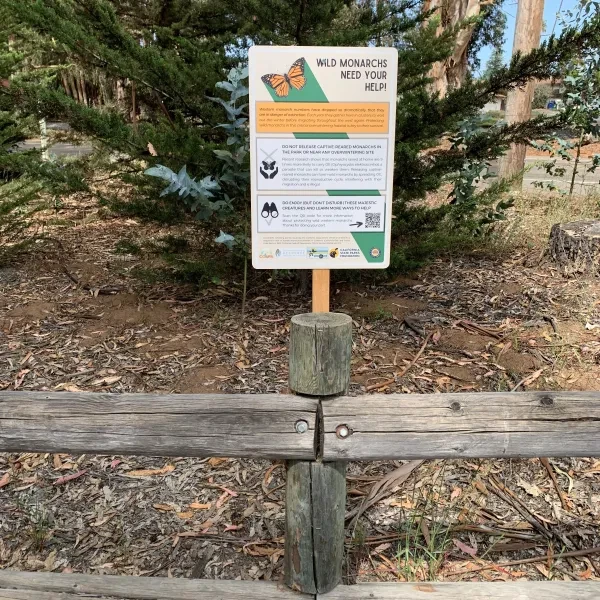Grants Funded:
Monarch Butterfly Conservation Habitat Enhancement Project
Groundswell Coastal Ecology – $30,226
Our funding allowed Groundswell Coastal Ecology to meet their goals and objectives at both Lighthouse Field State Beach and Natural Bridges State Beach. We held four community planting days in partnership with Groundswell to plant and maintain native nectar plants and windbreak trees. Groundswell is also planning for future climates by ensuring water availability and retention for trees and making plans to reduce wildfire fuels. Learn more about this project and how Groundswell is putting these funds to work by watching this video.

